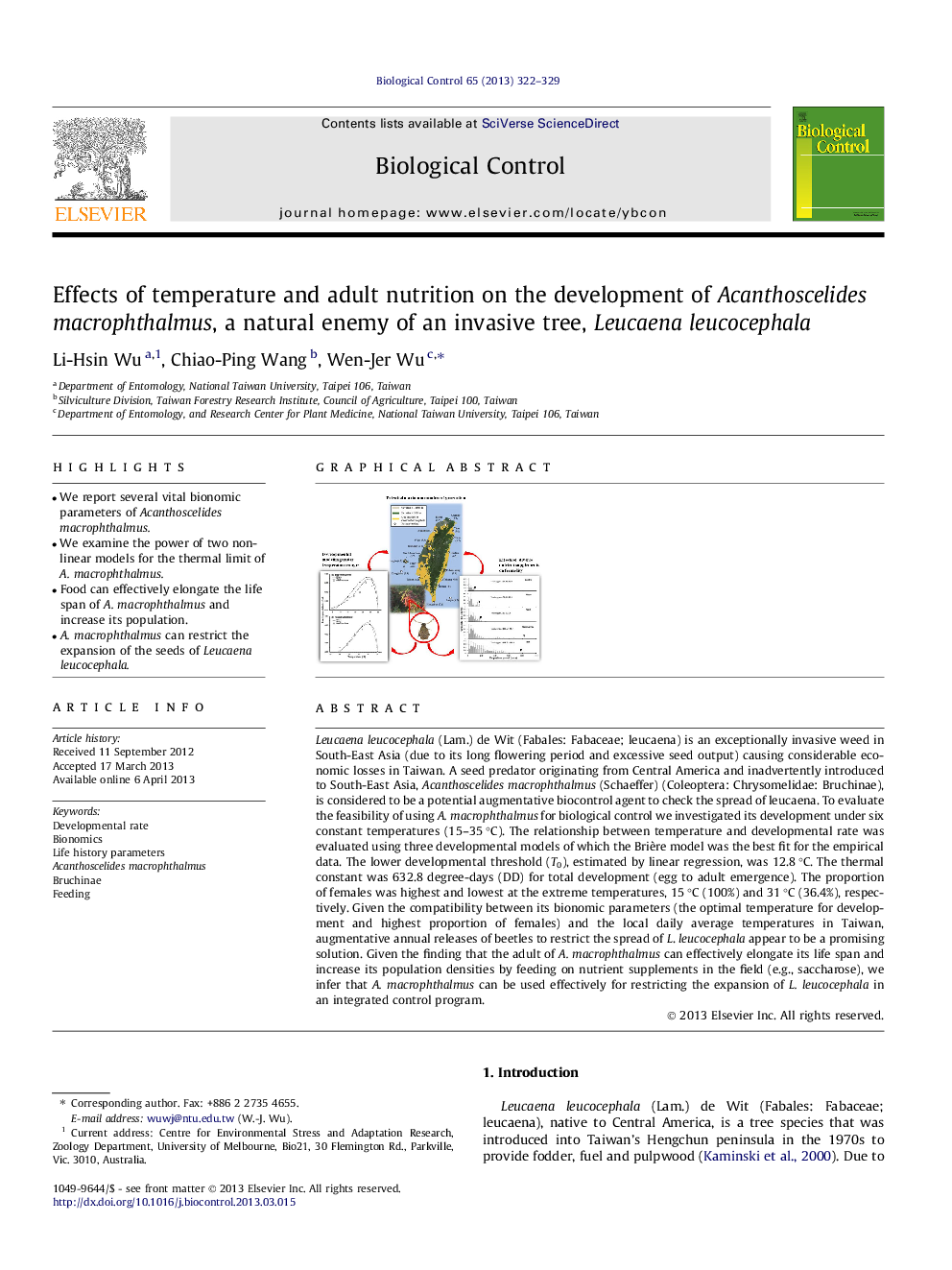| کد مقاله | کد نشریه | سال انتشار | مقاله انگلیسی | نسخه تمام متن |
|---|---|---|---|---|
| 4504028 | 1321053 | 2013 | 8 صفحه PDF | دانلود رایگان |

• We report several vital bionomic parameters of Acanthoscelides macrophthalmus.
• We examine the power of two non-linear models for the thermal limit of A. macrophthalmus.
• Food can effectively elongate the life span of A. macrophthalmus and increase its population.
• A. macrophthalmus can restrict the expansion of the seeds of Leucaena leucocephala.
Leucaena leucocephala (Lam.) de Wit (Fabales: Fabaceae; leucaena) is an exceptionally invasive weed in South-East Asia (due to its long flowering period and excessive seed output) causing considerable economic losses in Taiwan. A seed predator originating from Central America and inadvertently introduced to South-East Asia, Acanthoscelides macrophthalmus (Schaeffer) (Coleoptera: Chrysomelidae: Bruchinae), is considered to be a potential augmentative biocontrol agent to check the spread of leucaena. To evaluate the feasibility of using A. macrophthalmus for biological control we investigated its development under six constant temperatures (15–35 °C). The relationship between temperature and developmental rate was evaluated using three developmental models of which the Brière model was the best fit for the empirical data. The lower developmental threshold (T0), estimated by linear regression, was 12.8 °C. The thermal constant was 632.8 degree-days (DD) for total development (egg to adult emergence). The proportion of females was highest and lowest at the extreme temperatures, 15 °C (100%) and 31 °C (36.4%), respectively. Given the compatibility between its bionomic parameters (the optimal temperature for development and highest proportion of females) and the local daily average temperatures in Taiwan, augmentative annual releases of beetles to restrict the spread of L. leucocephala appear to be a promising solution. Given the finding that the adult of A. macrophthalmus can effectively elongate its life span and increase its population densities by feeding on nutrient supplements in the field (e.g., saccharose), we infer that A. macrophthalmus can be used effectively for restricting the expansion of L. leucocephala in an integrated control program.
Figure optionsDownload as PowerPoint slide
Journal: Biological Control - Volume 65, Issue 3, June 2013, Pages 322–329